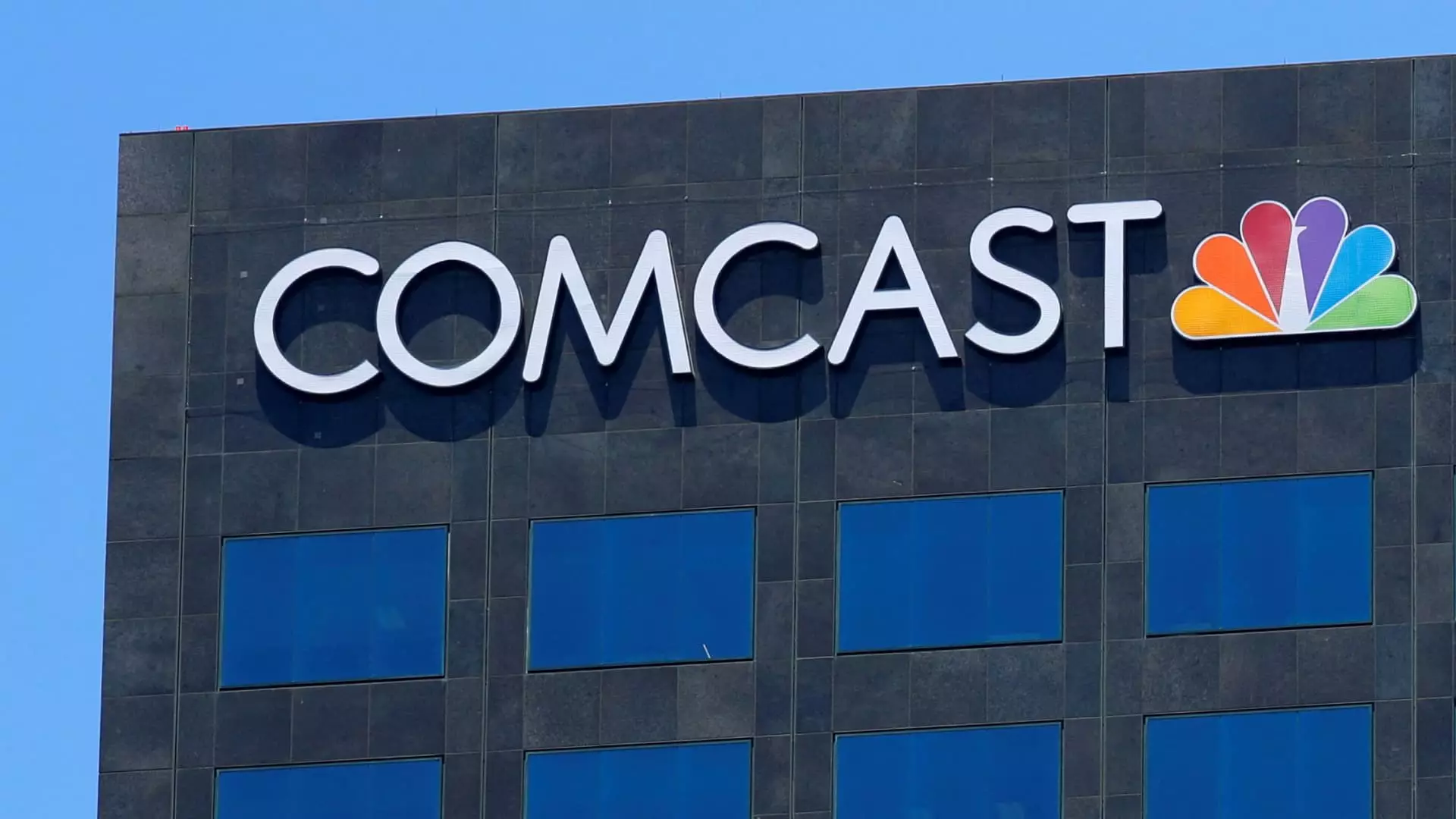As the media landscape continues to undergo tumultuous transformations driven by the rise of streaming platforms, Comcast has decided to take actionable steps to adapt to the evolving marketplace. A recent announcement reveals that Comcast is moving forward with the spinoff of its cable network channels, an initiative that could reshape the company’s operational focus and allow for greater strategic flexibility.
The decision to separate its cable networks from NBCUniversal is largely seen as a response to the ongoing trend of cord-cutting, with millions of consumers abandoning traditional pay TV services in favor of streaming alternatives. Comcast’s leadership is not blind to this shift; they have been actively investing in their streaming service, Peacock, to provide a competitive experience for viewers. This spinoff not only reflects the need to innovate but also a strategic move to potentially align with other networks or private equity firms interested in acquiring robust media assets. By uncoupling the cable networks, Comcast hopes to create an agile, standalone entity capable of pursuing growth opportunities independently.
The upcoming separation sees seasoned executives positioned to lead this new venture. Mark Lazarus, the current chairman of NBCUniversal’s media group, is set to helm the newly formed entity. His leadership will be complemented by Anand Kini, who serves as Chief Financial Officer, ensuring that the financial operations and overall strategy of the new company are well-aligned with its business aspirations. Interestingly, Comcast’s chairman and CEO, Brian Roberts, will maintain a voting position but will not be on the board. This strategically allows for separation of governance while retaining influence over key decisions.
Moreover, other leadership roles within NBCUniversal are also evolving. For example, Donna Langley is moving into a senior position as chairman of NBCUniversal Entertainment and Studios, which suggests a refinement of executive roles with a focus on bolstering content development. Such a structure implies that even as Comcast sheds its cable entities, it remains committed to building a robust content strategy at NBCUniversal.
From a financial perspective, the spinoff is poised to be a tax-free transition, which presents an attractive scenario for shareholders. With the new entity’s share structure mirroring that of Comcast, existing shareholders will have vested interests in both organizations. This maneuver could serve as a catalyst for increased shareholder value at a time when the media giant is grappling with a leveling-off in traditional TV revenue.
The initial market reaction reflects cautious optimism, as Comcast’s shares saw a rise following the announcement. Notably, the media segment reported a significant revenue increase, largely fueled by events like the Olympic Games. However, without these blockbuster events, the actual growth tends to slow. The transition to a leaner operational model with an eye on streaming revenues is essential as the overall market growth dynamics continue to shift.
Although Comcast’s cable networks have historically been lucrative, the landscape is changing. This strategic spinoff comes with its unique set of challenges, particularly the need for effective execution and the establishment of licensing agreements, especially concerning programs on MSNBC and CNBC. These internal dynamics will require careful navigation to sustain synergies with NBCUniversal’s news division.
Nevertheless, the move also opens avenues for unique partnerships or mergers with other media companies, potentially enabling better resource allocation and collaborative programming efforts. As competitors continue to dominate the streaming arena, maintaining a robust library of content will be paramount, and the flexibility afforded by the spinoff could be vital for successful negotiations in the future.
Comcast’s decision to pursue a spinoff of its cable networks reflects an acute awareness of the changing media environment and a desire to remain relevant in a world increasingly favoring streaming platforms. By positioning capable leaders in key roles and creating a tax-efficient structure, Comcast is setting the stage for possible growth in an era that favors innovation over traditional models. As the company navigates the complexities inherent in the transition, all eyes will remain fixed on how effectively it can leverage its existing strengths to capitalize on new opportunities in a rapidly evolving media landscape.

